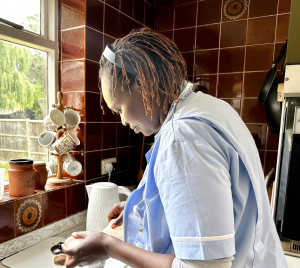Becoming a caregiver is a significant step, whether it’s supporting a loved one at home or beginning a professional role in care. While the responsibilities can feel daunting at first, approaching the journey with preparation and understanding makes the experience more meaningful for both the caregiver and the person receiving care.
 Understanding the Role Beyond Tasks
Understanding the Role Beyond Tasks
Caregiving is often thought of as helping with meals, keeping appointments, or managing medication. While these are important, the true heart of caregiving lies in something deeper: providing dignity, companionship, and reassurance. It’s about being present, listening, and recognising that emotional support is just as vital as physical assistance.
Learning and Building Knowledge
Preparation begins with education. Caregivers benefit from understanding the medical conditions, physical challenges, or emotional needs of the person they will support. Learning safe ways to assist with mobility, exploring effective communication strategies, and being aware of community resources can all help. This foundation of knowledge allows caregivers to feel confident and respond effectively to different situations.
Balancing Care with Self-Care
One of the most important aspects of preparation is recognising the need for self-care. Caregiving can be physically and emotionally demanding. Taking breaks, asking for help when needed, and maintaining personal wellbeing ensures that caregivers have the energy and resilience to provide consistent, compassionate support. A well-cared-for caregiver is better able to provide high-quality care.
Developing Practical Skills and Routines
Caregiving often involves adapting the home environment to make it safer and more supportive. Small changes, like removing trip hazards, improving lighting, or organising medical information, can make a big difference. Establishing routines also helps create stability, but flexibility is equally important as each day can bring new challenges.
Skills such as patience, problem-solving, and clear communication become invaluable. These are not just technical skills but human qualities that allow caregivers to navigate difficult moments calmly and thoughtfully.
Focusing on Independence and Connection
Good caregiving is about doing with, not doing for. Encouraging independence, whether that’s choosing meals, participating in household tasks, or staying socially connected, helps maintain self-esteem and dignity. Supporting someone to retain as much control over their life as possible is a key part of quality care.
Embracing the Journey
Preparing to be a caregiver is about more than readiness for tasks; it is about entering into a role rooted in trust, respect, and compassion. With knowledge, preparation, and self-awareness, caregiving can become a journey that not only supports another person but also enriches the caregiver’s own sense of purpose and humanity.
Final Thought
Caregiving is one of the most meaningful roles a person can take on. With preparation, patience, and compassion, caregivers can provide not just support, but dignity, comfort, and connection, helping those in their care live life with independence and confidence.




